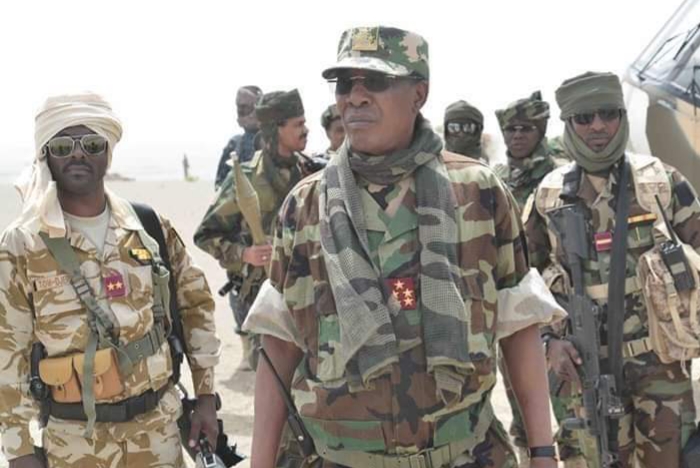Chadian President, Idriss Dèby Itno, has taken the war against terror groups, Boko Haram and Islamic State’s West Africa Province (ISWAP) personal by
Chadian President, Idriss Dèby Itno, has taken the war against terror groups, Boko Haram and Islamic State’s West Africa Province (ISWAP) personal by leading his team to Nguimi in Niger Republique, the logistic base for his campaign, to strategize on how best to tack the insurgents.
Recall that chadian soldiers suffered high casualty last week. At least 92 soldiers were killed in the deadliest-ever attack by the Boko Haram armed group on the country’s military forces.
“It’s the first time we have lost so many men,” Itno said after visiting the site of the incident in Lac province, which borders Niger and Nigeria.
The attack on soldiers on the Boma peninsula lasted at least seven hours and reinforcements sent to help out were also hit. 24 army vehicles were destroyed, including armoured vehicles and Boko Haram carried off weapons stolen from the military in speedboats.
Earlier, Nigeria’s military reported that scores of Nigerian soldiers were also killed in the northeastern state of Borno near the border with Chad. The attackers used rocket-propelled grenades and other heavy weaponry in the attack on the village of Gorgi on Monday evening.
Boko Haram has stepped up its attacks in recent months on the islands of the Lake Chad Basin. Since 2015, countries in the area have cooperated in the Multinational Joint Force, a regional coalition engaged around Lake Chad with the help of local residents formed into vigilante groups.
Boko Haram launched an armed campaign in Nigeria in 2009 before beginning incursions in its eastern neighbours. Boko Haram’s decade-long armed campaign has so far killed 36,000 people and displaced nearly two million in northeastern Nigeria, according to the United Nations.
